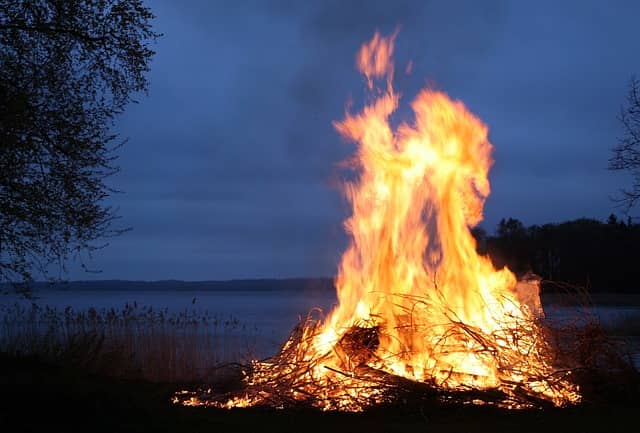Why is the fire ironic in Lord of the Flies? In William Golding’s novel “Lord of the Flies”, the fire is an essential symbol that represents hope, rescue, and civilization. However, as the story progresses, it becomes a source of irony that highlights the dark side of humanity and the destructive power of human nature. The fire is ironic because instead of helping Jack kill Ralph, the fire led to their rescue.
Why is the fire ironic in Lord of the Flies? (Answer)
Ironically, although it is indeed a fire that lures the naval officer’s ship to the island, it is not the signal fire that Ralph and his followers had built to attract passing ships for rescue. Instead, it is Jack’s hunters who set up a forest fire solely for the purpose of killing Ralph. The fire is, therefore, an example of situational irony, which is when actions have an effect opposite from what was intended. The fire is a form of situational irony because instead of flushing Ralph out so Jack’s group could kill him, the forest fire attracted the Naval Officer who rescued Ralph and the other boys.
Moreover, throughout the novel, Golding uses fire as a metaphor for civilization. In its earliest form on the island, fire represents hope for survival and rescue. However, as tensions rise between Ralph and Jack’s followers, we see how this symbol slowly transforms into one that represents destruction and savagery.
The irony here lies in how something so crucial to survival can also become a weapon used to destroy others. Through this transformation of meaning behind the symbol of fire in “Lord of The Flies,” Golding underscores his central theme: Human beings have an innate capacity for evil.
Furthermore, Simon discovers that there isn’t a beast on the island. Instead, they are themselves becoming beasts over time due to human nature. He rushes back towards the campfire with this information, but the boys mistake him for the beast, which leads to his death.
What does the fire symbolize in Lord of the Flies?
The fire symbolizes rescue and hope to the survivors in Lord of the Flies. It serves as a beacon of civilization and a means of communication with the outside world. The boys believe that maintaining a signal fire will increase their chances of being rescued. However, as the story progresses and the boys descend into savagery, their ability to maintain the fire diminishes, symbolizing their loss of hope for rescue and descent into chaos.
What is an example of dramatic irony in Lord of the Flies?
One example of dramatic irony in Lord of the Flies is when Simon discovers that the “beast” the boys are so afraid of is actually a dead parachutist. This is ironic because while Simon knows the truth, the other boys are preparing to hunt and kill what they believe to be a terrifying creature, unaware of its true nature.
Why is Percival unable to remember his name and address?
Percival is unable to remember his name and address because the savagery and chaos that have unfolded on the island have shattered his childlike innocence, which is symbolized by his name and home. The brutal experiences he has witnessed and been a part of have erased the connection he once had to his identity and sense of belonging, leaving him disoriented and unable to recall these fundamental aspects of his life.
Conclusion
In conclusion, William Golding masterfully used symbolism in “Lord Of The Flies” to underscore his central theme about human nature’s dark side. The irony behind how something as pure as a signal fire could transform into something lethal reveals how easily humans can turn from civilized beings into savage ones at any moment. The story teaches us that it is only through self-awareness and the desire to be better than our primal instincts that we can overcome the innate darkness within us.
